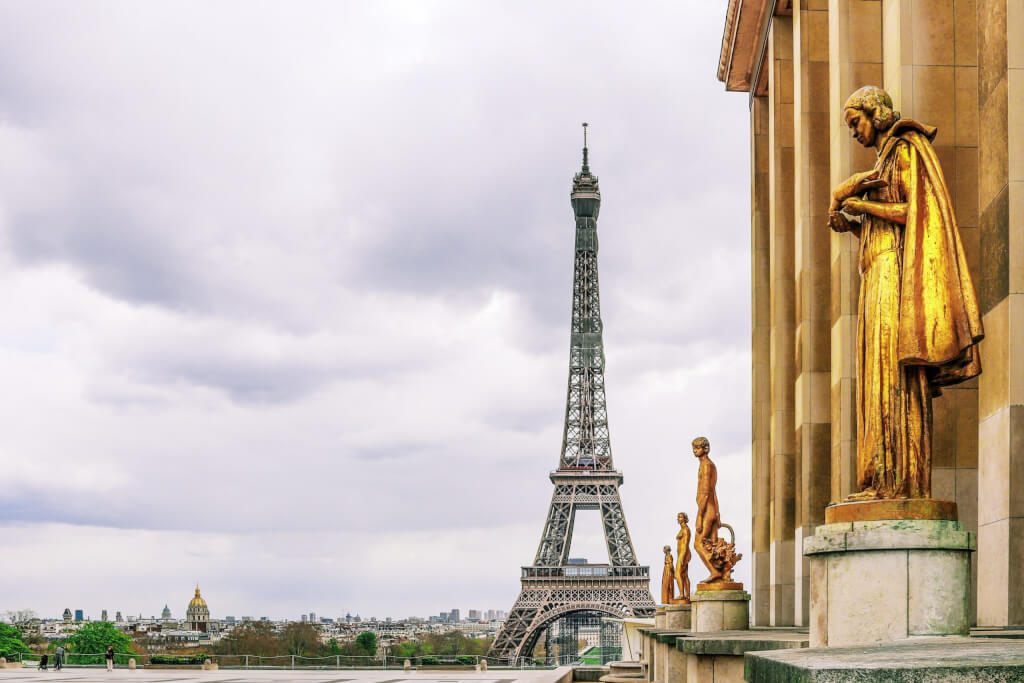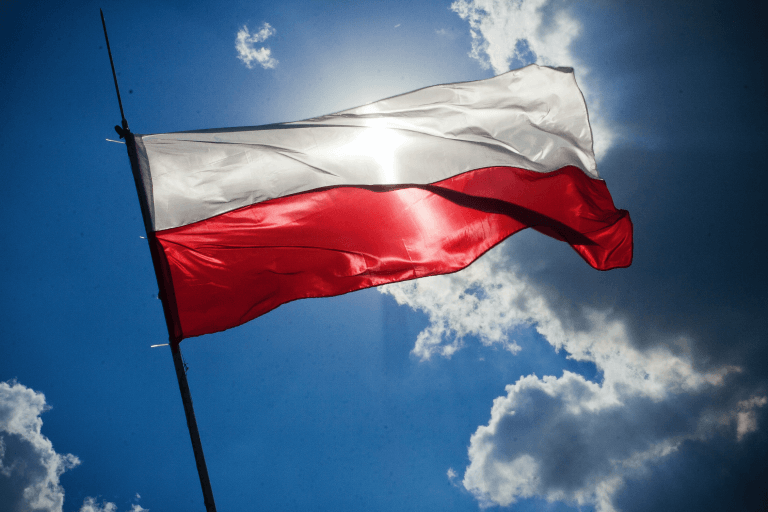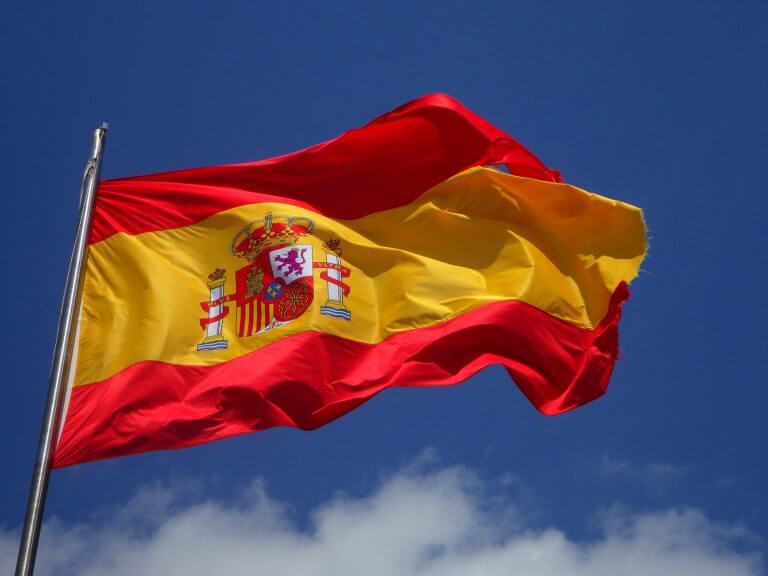
Hydra of Macronism

Back in December 2021, Nathalie Loiseau, leader of the “The Republic on the Move” list for the 2019 European elections, joined Edouard Philippe’s Horizon party to lend weight to Emmanuel Macron’s right-wing presidential majority. This was a significant event.
Previously, the President had only one party – “The Republic on the Move”. This project has been built under Macron since 2017. The party was built on the idea that the future French leader would be supported by a no-nonsense centrist “swamp”(as they were called during the Great French Revolution). The grey and boring Macron was supposed to be the guarantor for ensuring their fear of the change and instability threatened by the far right and the far left. Now, incidentally, the party has been pompously renamed Renaissance. Ostensibly, this means that the party associates itself with this era in the life of Europe, contrasting itself with the “wild medievalism” of the nationalists and the overly “turbulent modernity” of the left.
The 2020 regional elections, a failure for the “The Republic on the Move” party, has already shown that even indifferent citizens have their own ideological predilections, which the dull centrists will not satisfy. So, a new and much more interesting concept has been coined. If the presidential majority of the past holders of the Elysée Palace were built on ideological affinity with different organizational components, the situation has now become opposed. All the coalition parties were fed from the same hand and created from the same talent pool, but had ideologies to suit all tastes.

This was realized in the form of the coalition “Together” (French: “Ensemble citoyens!”, EC). It is an alliance of political parties in France, founded in November 2021 by a presidential majority. The coalition includes The Republic on the Move, the Democratic Movement, Law and Constructive Law (Agir), Territories of Progress, Horizon, and the Ecological Party “Together”. French Prime Minister Jean Castex is also a member of the coalition in an individual capacity. The bloc has 31 seats in the Senate, 347 seats in the National Assembly (majority), and 21 of France’s 79 seats in the European Parliament. Now more about the tasks of its parts:
1. The Republic on the Move (La République en Marche!), the full official name is Association for the Renewal of Political Life (Association pour le renouvellement de la vie politique). On May 5, 2022, it became the Renaissance. It is a social-liberal political party in France. The leader of the party is Stanislas Guérini, a member of the National Assembly. The bloc has 29 seats in the Senate, 288 seats in the National Assembly (majority), and 21 of France’s 79 seats in the European Parliament. The “Mother organization”. It is left for those who do not want to get out of the cozy centrist “swamp”. It was once molded by “traitors” from the ranks of the Republicans and Socialists, as well as all sorts of “social activists”. In the current situation, it serves as a socialist party for voters who want to see a fearful world, but are content with the current capitalism and want nothing to change in society – that is, for “conscientious” petty-bourgeois and “white-collar” people. The bulk of the macronists in the National Assembly will come from it – 400 people.
2. The Democratic Movement (French: Mouvement démocrate, MoDem) is a French centrist political party founded on 10 May 2007 by the writer and politician François Bayrou. The party holds 6 seats in the Senate, 42 in the National Assembly, and 5 of France’s 79 seats in the European Parliament. Bayrou himself once joined the pro-presidential coalition and, having been an active politician since the 1980s, has the image of a “political prostitute”. It would be a shame to kick him out because a lot is riding on his cunning and resourcefulness. In France, people believe journalists in vain. It is for this “good name” and Macron’s connection to French politics of the past that Bayer is allocated between 100 and 110 seats on the candidate list.
3. The Radical Party (Parti Radical) is a French political party – initially left-wing. With the emergence of socialists and then communists on the political scene, it shifted to the center-left (in parliamentary elections in the mid-20th century it participated in a coalition with the left) and finally to center-left positions (until 2011 it cooperated with the right-wing Union for a Popular Movement). The leader of the party is a member of the National Assembly, Laurent Hénard. The party has 14 seats in the Senate, 16 in the National Assembly, and 1 of France’s 79 seats in the European Parliament. The same “sticklers” as Bayrou’s party, but on a smaller scale. There is little credibility, but also less danger of “treason” than from Bayrou. And don’t let the name mislead you – they were “radical” about 100 years ago, and even then not very much. Now, the party is in the coalition more like a tick-box, so it has not won any guaranteed seats.
4. Law and Constructive Law (Agir, la droite constructive) is a political party in France established on 26 November 2017. Most of its founding members were previously associated with the Constructive faction within the center-right Republican Party. Presenting itself as a “liberal, social, European, humanist and reformist” party, Agir was founded by a group of 19 established politicians as an alternative to the Republicans. The party’s leader is former Culture Minister Frank Rister. The party has 6 seats in the Senate, 11 in the National Assembly, and 1 of France’s 79 seats in the European Parliament. Traitors within the ranks of the Republicans have proved too tolerant even for a party as tolerant as the heirs to the fame of Charles de Gaulle. Like the Radicals, a party of second-order and value. Scare stories about the fascist order within the Republicans, which they have been unable to tolerate, harm these potential Macron rivals because of the low value of the seats on the presidential candidate list they have not earned.
5. “Horizon” is a center-right French political party founded in October 2021 by Edouard Philippe, mayor of Le Havre and former French prime minister. The party was created to attract center-right support for Emmanuel Macron in the 2022 French presidential election. The leader of the party is the mayor of Le Havre, Edouard Philippe. The party has no seats in the Senate, has 2 seats in the National Assembly, and 1 of France’s 79 seats in the European Parliament. The right leg of macronism is fiercely fuelled by strong cadres. It is expected to give a fight and “crush” the “Republicans”. The cadres flow into it from the “The Republic on the Move” party. It has won 80 seats on the presidential list.
6. Territories of Progress (Territoire du Progrès) – The Social Reformist Movement is a French political party. It was founded in February 2020 by ministers Jean-Yves Le Drian and Olivier Dussopte. It brings together former elected representatives of the Socialist Party who joined the presidential majority under Emmanuel Macron and co-founded the pro-presidential “The Republic on the Move”. This alliance was then led by former MP Gilles Savary. Senator Xavier Iacovelli became its General Secretary. The party has 4 seats in the Senate, 46 in the National Assembly, and one of France’s 79 seats in the European Parliament. The left leg of “macronism”. Unlike Horizon, they have an easier task – the Socialists will soon annihilate themselves. Cadres also flow into it from “The Republic on the Move”. Because of the Socialists’ low profile in the forthcoming elections, for the time being, the Macronist Socialists will go to the National Assembly on the Renaissance lists. There is no need for autonomous participation in the electoral process.
7. “Together” (“Ensemble citoyens!”, EC) is a French environmental political party founded in April 2020 around Barbara Pompili, Hugues Renson, and Jacques Merah, members of The Republic on the Move. It is part of Emmanuel Macron’s presidential majority. The leader of the party is Philippe Hardouin. The party has 21 seats in the National Assembly, with no seats in the Senate or the European Parliament. A member of the party is Barbara Pompili, Minister for Environmental Affairs of the Castex government. A novel party is here to parasitize the increasingly popular ‘green’ agenda among the urban lunatics. However, this too became irrelevant in this election and the party did not win any seats on the presidential list.

The whole model creates a unique type of “macronism” which should be the future of France and the countries of Europe. Whereas previously “managed” parties on all flanks of politics were branded undemocratic by Europeans, macronism makes this model legal. By competing with each other, all the parties listed above will elect Macron as president, and beyond that, his successors. The only hope is that the traditions of European Freedom will prevent this from materializing and that the “far-right” and “far-left” will not give up so easily.

